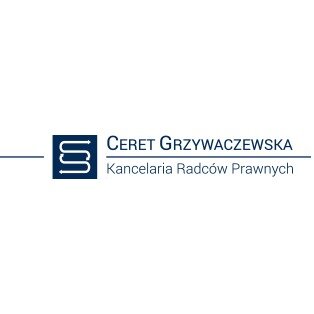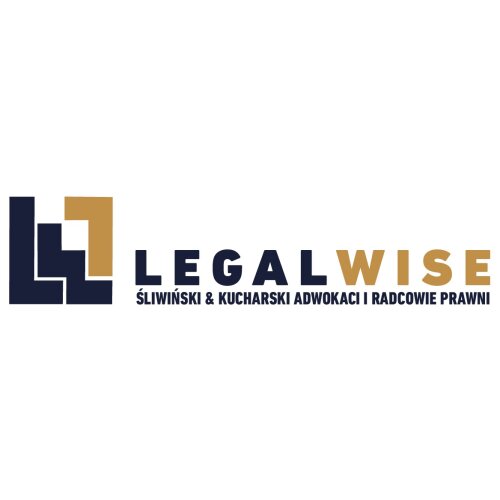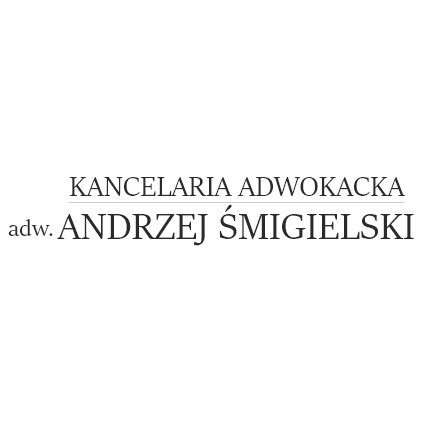Best Structured Finance Lawyers in Lodz
Share your needs with us, get contacted by law firms.
Free. Takes 2 min.
List of the best lawyers in Lodz, Poland
About Structured Finance Law in Lodz, Poland
Structured finance refers to complex financial transactions designed to help companies tailor funding solutions that go beyond conventional lending or investment options. In Lodz, Poland, structured finance typically involves securitizations, collateralized loan obligations, asset-backed securities, and various hybrid funding structures. With the growth of Lodz as a business hub and its integration into both the Polish and wider European economy, the need for specialized legal expertise in structured finance has significantly increased. Polish laws governing structured finance have evolved to support transparency, compliance, and investor protection, making it essential for market participants to seek proper legal guidance.
Why You May Need a Lawyer
Structured finance transactions are often highly complex, involving multiple parties, extensive documentation, and strict regulatory requirements. Here are some situations where you may need a lawyer:
- You plan to launch an asset-backed security or structure new financial products.
- Your business is entering into complex financing or refinancing agreements.
- You need to ensure compliance with both Polish and EU regulations regarding structured products.
- You are dealing with disputes arising from structured finance transactions.
- You require guidance on risk assessment or management strategies.
- You are a foreign investor entering the Polish structured finance market.
- You are concerned about regulatory investigations or possible sanctions.
- You want to review or negotiate contracts related to structured financing.
Local Laws Overview
Structured finance in Lodz, and in Poland generally, is governed by a set of interrelated laws that address financial instruments, capital markets, insolvency, and banking. Key regulatory areas include:
- Banking Law: Outlines the regulatory framework for financial institutions and their products.
- Capital Markets Law: Regulates public offerings, trading in securities, and the disclosure obligations of issuers.
- Company Law: Dictates company structures and their ability to enter into structured finance arrangements.
- Bankruptcy and Restructuring Law: Sets out rules dealing with insolvency, vital for structuring credit risk in transactions.
- EU Regulations: Many aspects of structured finance, such as investor protections and disclosure, are harmonized with European Union directives.
The Polish Financial Supervision Authority (Komisja Nadzoru Finansowego - KNF) supervises structured finance activities, ensuring market integrity and compliance. For transactions in Lodz, adherence to both national and EU requirements is critical.
Frequently Asked Questions
What is structured finance and how does it differ from traditional lending?
Structured finance refers to complex financial arrangements that use asset pools, securitizations, and derivatives to manage risk and create new funding opportunities. It differs by providing tailored solutions beyond standard loans.
Can foreigners participate in structured finance transactions in Lodz?
Yes, foreign investors and entities can take part in structured finance deals, provided they comply with Polish and EU regulations, with the process often requiring additional due diligence and documentation.
What regulatory body oversees structured finance in Poland?
The Polish Financial Supervision Authority (KNF) is responsible for overseeing structured finance transactions and ensuring financial market stability and compliance.
What legal documents are needed for a structured finance transaction?
Typical documentation includes term sheets, offering memoranda, trust or security agreements, contracts for the sale and purchase of assets, and regulatory filings.
Are there tax implications associated with structured finance?
Yes, these transactions can have significant tax implications, including VAT, corporate income tax, and withholding tax, requiring expert legal and tax advice.
What role does securitization play in Polish structured finance?
Securitization enables companies to convert pools of assets, like loans or receivables, into tradable securities. This is a common structured finance strategy in Poland, subject to strict regulatory requirements.
Is it necessary to involve a notary in structured finance agreements?
Notaries may be required for certain contractual acts such as forming pledges or public deeds, but their involvement depends on the structure and nature of the transaction.
How long does it take to complete a structured finance deal in Lodz?
The timeline varies depending on the complexity and regulatory approvals needed. Deals may take from several weeks to many months to complete.
What risks should I be aware of in structured finance transactions?
Common risks include credit risk, legal and regulatory risk, counterparty risk, and market volatility. Legal counsel is crucial to identifying and mitigating these risks.
Do structured finance transactions require KNF approval?
Many structured finance arrangements, particularly those involving public offers or regulated activities, require KNF notification or approval.
Additional Resources
If you are seeking more information about structured finance in Lodz, consider reaching out to these resources:
- Polish Financial Supervision Authority (KNF): The main regulator for financial markets in Poland.
- National Chamber of Legal Advisers (Krajowa Izba Radców Prawnych): For finding licensed legal advisers specialized in finance.
- Banking Law Association (Stowarzyszenie Prawa Bankowego): Provides seminars, publications, and guidance on financial law.
- Polish Bank Association (Związek Banków Polskich): Offers insights and data relevant to structured finance market trends.
- Chamber of Commerce and Industry in Łódź: Supports business ventures with legal guidance and networking.
Next Steps
If you require legal assistance regarding structured finance in Lodz, begin by gathering all relevant documents and transaction details you have. Identify your objectives and be prepared to discuss your risk tolerance, timeline, and expected outcomes. Search for law firms or legal advisers with proven experience in structured finance and Polish financial law. Schedule an initial consultation to clarify your needs and understand the potential costs involved. Finally, ensure that your chosen legal provider is duly registered and recognized by the appropriate regulatory and professional bodies in Poland. Acting proactively will help protect your interests and facilitate a successful transaction.
Lawzana helps you find the best lawyers and law firms in Lodz through a curated and pre-screened list of qualified legal professionals. Our platform offers rankings and detailed profiles of attorneys and law firms, allowing you to compare based on practice areas, including Structured Finance, experience, and client feedback.
Each profile includes a description of the firm's areas of practice, client reviews, team members and partners, year of establishment, spoken languages, office locations, contact information, social media presence, and any published articles or resources. Most firms on our platform speak English and are experienced in both local and international legal matters.
Get a quote from top-rated law firms in Lodz, Poland — quickly, securely, and without unnecessary hassle.
Disclaimer:
The information provided on this page is for general informational purposes only and does not constitute legal advice. While we strive to ensure the accuracy and relevance of the content, legal information may change over time, and interpretations of the law can vary. You should always consult with a qualified legal professional for advice specific to your situation.
We disclaim all liability for actions taken or not taken based on the content of this page. If you believe any information is incorrect or outdated, please contact us, and we will review and update it where appropriate.











